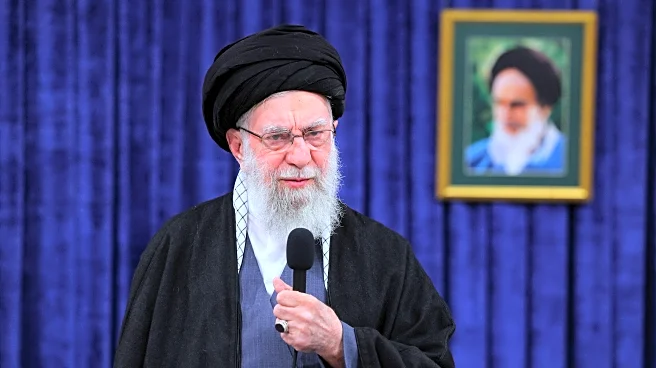What's Happening?
Director Daniel Fahre's film 'Battle of Oslo' opened the Norwegian International Film Festival Haugesund, focusing on the sinking of the German cruiser Blücher in 1940. Fahre highlights the film's relevance, drawing parallels between historical events and current global tensions. The film portrays the dilemmas faced by civilians and military personnel during the German occupation of Norway, emphasizing the emotional and human aspects of war. Fahre aims to explore the character of Colonel Birger Eriksen, who ordered the attack on the German invaders, and the subsequent scrutiny he faced.
Why It's Important?
The film serves as a reminder of the historical events leading up to World War II and the impact of war on individuals and nations. By focusing on personal stories and emotional experiences, Fahre's work encourages viewers to reflect on the human cost of conflict and the importance of understanding history. The film's relevance is heightened by current geopolitical tensions, prompting discussions on the lessons that can be learned from past conflicts. It also highlights the role of cinema in preserving history and fostering dialogue about complex issues.
What's Next?
Following its premiere, 'Battle of Oslo' is expected to spark conversations about historical memory and the portrayal of war in media. The film may influence future projects that aim to explore similar themes, encouraging filmmakers to delve into personal narratives within historical contexts. Audiences and critics will likely engage in discussions about the film's accuracy and emotional impact, potentially leading to broader debates about the representation of war in cinema.
Beyond the Headlines
Fahre's approach to storytelling emphasizes the importance of personal experiences in understanding historical events. By focusing on Colonel Eriksen's character, the film challenges traditional narratives of heroism and victory, offering a nuanced perspective on the complexities of war. This approach may inspire filmmakers to prioritize character-driven stories, highlighting the emotional and ethical dimensions of historical events. The film also raises questions about the role of older individuals in decision-making processes, challenging age-related stereotypes in professional settings.











